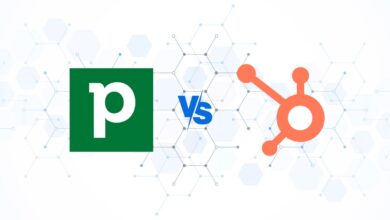The Salesforce Blues? Why investors are singing a sad song about a deal to buy Informatica

I got the Salesforce Blues…
Even Slack can’t pick me up…
I got the Salesforce Blues…
Is Informatica outta luck?
Oh, Salesforce. Even legendary blues disciple Robert Johnson couldn’t pen a sadder tune about these troubled waters. What did you ever do to deserve this reaction?
Before we discuss any “deals with the devil” or take riders to Rosedale, let’s review what we know (and don’t know).
Things started brewing last Friday when the Wall Street Journal first reported that the CRM giant was in early talks to buy Informatica, a leader in the data management software space.
For context: Informatica’s tools provide advanced data quality and integration capabilities, helping businesses enhance the value of their data for business, IT, marketing, and commerce applications. This includes stuff like APIs, cloud modernization, Customer 360 solutions, and a whole lot more.
On Monday, when word hit the street, Salesforce stock tumbled 7.3%. Informatica, likewise, was off by 6.5%. Salesforce recovered a bit today, but the axe fell deep – and swiftly. But it’s too early to draw conclusions.
It’s no secret that Salesforce has been expanding and diversifying its ecosystem. When I reflected last week on Google’s dalliance with buying HubSpot, I also noted how Salesforce is entangled in the gravitational influence of the leading cloud providers – where AWS, Microsoft, and GCP present a celestial three-body problem.
Over the years, Salesforce has evolved CRM through its own sales lens, adding tools like marketing automation, commerce, CMS, analytics, and a whole host of technologies that make its cloud more attractive and “sticky” to enterprises.
Central to it all is data, the currency of business, and an area that’s being threatened by the deprecation of cookies and an evolving consumer privacy landscape.
When it comes to an acquisition of this scale (at $38.48 a share, the Informatica price tag would be in the billions) there are a lot of underlying forces at play. But what presumably makes this worth all the “B’s” to Salesforce is the exploding value of AI. This is why the hunt for platforms like Informatica could be key to accelerating the injection of AI-powered capabilities into the mix.
Both Salesforce and Informatica have been charging up their existing products with artificial intelligence for quite some time but really ramping up since the introduction of Open AI and LLMs. Earlier this year, Salesforce released Einstein Copilot, a generative conversational AI assistant for its CRM that delivers more trusted responses trained on your company’s data.
Around this time last year, Informatica also released its AI-powered Intelligent Data Management Cloud, which included its novel CLAIRE GPT – providing the industry’s first generative AI solution within a data management platform.
And so here we are, waiting to see if Salesforce starts Travis-picking with another big gamble. The talks are merely at the advanced stage, but they could represent a major move for both companies and send ripples across the CRM and cloud landscape.
So why are investors singin’ the blues?
Play it again, Sam…
It’s a song as old as time, because Salesforce has been around forever – and given its track record with its most recent acquisitions, it’s clear that the street is feeling a bit uneasy about another big-ticket purchase that doesn’t pay off in big dividends.
Just to jog your memory: when Salesforce touted its breathtaking $28 billion acquisition of Slack in 2020, CEO Mark Benioff proclaimed it was a “match made in heaven.” It didn’t take long for things to sour – from a visible rift between Benioff and Slack CEO Stewart Butterfield, to real skepticism that sales could be increased by bundling and integrating Slack with other products.
To be clear, there are multiple Slack integrations with Salesforce, from basic connectors for admins to Service Cloud and Tableau. You can also build custom notifications, which is pretty handy.
OK, so it works. But by all measures, it hasn’t been a windfall. And paying 26 times Slack’s future revenue was just one painful reality playing out over the last two years.
The other was fighting the growing “Cloud War” with Microsoft, its former rival for Slack and persona non grata around Salesforce HQ. As competition betwixt Dynamics 365 and other downstream systems ensued, Salesforce was feeling pressure to innovate, scale, and make up ground for a colossal misstep.
And things are getting precarious from an accountability perspective. According to Reuters, Salesforce has been under the gun since early last year, when a pod of activist investors – including ValueAct Capital and Elliott Management – started raising flags around the company’s strategy. This included a quest for changes in management, but it might also be the fire that lit leadership into action around the company’s next strategic venture.
Buying Informatica at the proposed price will make this the biggest acquisition for Salesforce since the Slack debacle. Not to say that all previous purchases have missed the mark. According to Quartz, Salesforce has purchased over 70 companies since 2006. Some of those must have turned out to be winners, right?
Right?
Well, that’s exactly what investors are weighing. Even though 2023 was a year of austerity for the CRM king’s unabated “expansion by acquisition,” some major purchases prior to Slack are still rattling the market’s rib cage. In 2019, it went hog-wild with Tableau – spending $15.7 billion for the analytics visualization platform. A year earlier, it dropped $6.5 billion for Mulesoft – arguably the leading API development and integration platform.
On the surface, these purchases seemed to serve ostensibly ambitious goals: Salesforce wanted to enrich customer data and expand its marketplace with API-powered interoperability. But just as with Slack, Salesforce gutted both platforms after the deals were closed, laying off sizeable portions of their respective teams. With Tableau, a major reorg last year signaled that the acquisition might not be living up to its expectations.
Maybe not the best way to handle your multi-billion-dollar purchases. But that’s another song on the record.
Why it matters
As the tale goes, Robert Johnson sold his soul to the devil at a crossroads in Cleveland, Mississippi in exchange for a mastery of the guitar. Regardless of what you believe, his talent was unrivaled at the time – and he might have been the first rock star ever.
Like the blues legend, Salesforce was unquestionably the first rock star of CRM. Sure, it was flanked by contemporary pioneers like Goldmine and Maximizer, but it was Mark Benioff’s vision of “The End of Software” that really blew people’s minds and established a revolutionary foothold for the category. And it was rock ‘n roll all the way to the top.
It’s true what they say: some stars burn bright and fade into obscurity. That’s not the case here, but market-leading entities like Salesforce do lose their luster as innovators and disruptors when the accouterments of success begin to weigh things down.
There’s no doubt that Salesforce has made some, shall we say, miscalculations when feeding its voracious M&A appetite. That might seem obvious on the frontend relative to the inflated price tag for Slack. But the real misstep is the mismanagement of the potential. Reorgs and layoffs aside, it seems that no one had a real plan for what to do after it won the race.
Still, Salesforce got to its Gleaming Tower on the Bay because it has continued to nurture its core business – and I’m certain it has a few more tricks up its sleeve. Case in point: aligning with AWS to build a beachhead against Microsoft via its Marketplace.
The Informatica acquisition could also be more tacitly aligned with Salesforce, building on market longevity and proven enterprise relationships. Like Salesforce, Informatica’s no spring chicken – it was founded in 1993, six years before Benioff left Oracle to build his new kingdom.
Also on the plus side: it looks like a good buy from a revenue and market share perspective. Informatica’s stock has been performing well since the launch of its AI features, up 43% this year. With 5,000 active customers and 6,000 employees, it could present a more profitable catch – as long as the multipliers hold steady.
At the end of the day, the cloud plays big in any decision, for reasons already mentioned (vis-à-vis the “Cloud Wars”). The next big hurdle in cloud adoption and management is optimization, fueled by actionable data insights. If Salesforce can complement its core services with greater access to data innovation and cloud modernization services – coupled with even greater API integration and data quality capabilities – it might have a real winner on its hands.
And of course, there’s AI. Informatica’s CLAIRE GPT leverages unified metadata intelligence to enhance data discovery up to 100x faster and unlock new levels of productivity. Automation is becoming increasingly important as brands amass huge amounts of data across billions of transactions and data integration jobs. This is work humans can’t do – and its CRM ecosystem could certainly benefit from.
After a long drought of M&A activity, 2024 is looking to be a year of potentially epic dealmaking. This move by Salesforce is a clear signal that sentiment is improving. That said, Jamie Dimon of JPMorgan maintains caution as the outlook is compounded by a confluence of outside factors – namely a Presidential election in the U.S. and continued global conflicts that could impact supply chains. In other words, we just don’t know.
It’s hard to weigh in fully on speculation, but with so much percolating across the tech sector, it’s important to keep our eyes on what’s really happening. Salesforce is a critical part of almost every enterprise stack, and a key one for CMS and DXP platforms (heck, Salesforce has shown up as a DXP for Gartner). Improving data management could be a pro for customers on multiple levels.
Of course, the Blues can be unpredictable – and sometimes, you don’t start singin’ ’til the deal is done.
Let’s hope the devil isn’t involved.
Upcoming conferences
CMS Connect 24
August 6-7, 2024 – Montreal, Canada
We are delighted to present our first annual summer edition of our prestigious international conference dedicated to the global content management community. Join us this August in Montreal, Canada, for a vendor-neutral conference focused on CMS. Tired of impersonal and overwhelming gatherings? Picture this event as a unique blend of masterclasses, insightful talks, interactive discussions, impactful learning sessions, and authentic networking opportunities.

CMS Kickoff 25
January 14-15, 2025 – Tampa Bay Area, Florida
Join us next January in the Tampa Bay area of Florida for the third annual CMS Kickoff – the industry’s premier global event. Similar to a traditional kickoff, we reflect on recent trends and share stories from the frontlines. Additionally, we will delve into the current happenings and shed light on the future. Prepare for an unparalleled in-person CMS conference experience that will equip you to move things forward. This is an exclusive event – space is limited, so secure your tickets today.



